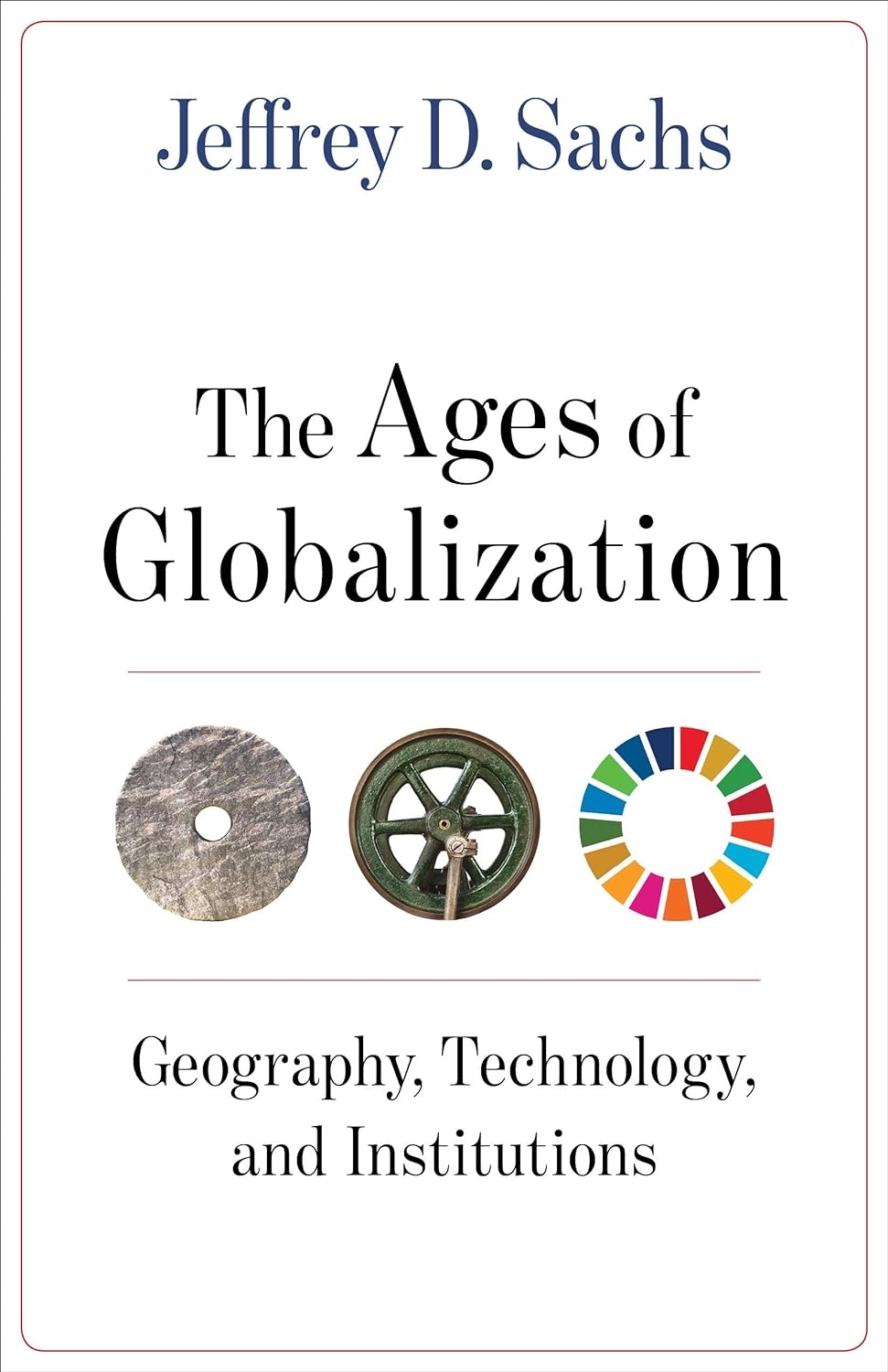Additional information
| ASIN | B07RG8FXTP |
|---|---|
| Publisher | Columbia University Press (2 June 2020) |
| Language | English |
| File size | 19620 KB |
| Text-to-Speech | Enabled |
| Screen Reader | Supported |
| Enhanced typesetting | Enabled |
| X-Ray | Enabled |
| Word Wise | Enabled |
| Print length | 389 pages |
| UNSPSC-Code | 55111505 (Books on tape or compact disc) Report an incorrect code |












Saurav Pal –
Most of us is already familiar with Dr. Jeff Sachs as a world famous economist and a pioneer in sustainabilty. He already authored or co-authored some of the books on economics. This time he illuminated the economic history of the world with a focus on globalization in seven different phases! Rich in info with the signature writing style, this work by Dr. Sachs destined to be a classic! I recommend this book to all those who are interested to know our economic history. This book featured colored maps and images which made it even more attractive and easy to understand one.
Jaume Josa –
De lectura obligada para mejor comprender el mundoMe ha gustado que se explique la historia desde el Paleolítico, con diversos imperios coexistiendo, desde los Han en Asia, los Griegos, Romanos. Esta coetaniedad me parece muy importante.Recomiendo el libro a cualquier persona deseosa de comprender el mundo desde una visión más global, fuera del eurocentrismo habitual.
Jesus Elias –
Historia economíaExcelente libro sobre la historia humana y los factores que la marcaron. Altamente recomendable
Matt L. Pimentel, Ph.D. –
Short and to the point.Dr. Sachs’ easy to read and follow book is informative and almost a “Cliff’s Notes” version of the epic, “Guns, Germs, and Steel: The Fates of Human Societies,” by Jared Diamond. Sachs delineates societies in to seven sections, from the Paleolithic Age (around 70,000 BCE) to the current Digital Age (21st century). Sachs correctly postulates the advantage and lineage of societies describing the migration of humans from the Southern aspect of Africa to Europe, Asia and to North and South America, through the Beringia Bridge between Eastern Russia and the Western aspect of North America. He details through the ages: Paleolithic, Neolithic, Equestrian (his version of copper and bronze age), Classical, Ocean, Industrial, and the Digital. Sachs, as did Diamond, described the advantages of the so-called the “lucky latitudes,” because, “they have been home to humanity’s greatest technological and economic progress.” These coordinates are from 25 degrees North to 45 degrees North in Eurasia. As an extrapolation, the fertileness of agriculture and animal husbandry was done, centuries later in the Western Hemisphere’s aspect. As a very interesting fact, North and South America’s advancements were delayed because our ancestors consumed the horse during the Paleolithic Age, instead of keeping a few around. Once the Beringia Bridge disappeared around approximately 14,500 years ago, the Eastern and Western Hemispheres were separated from all communication until around the 12th to 15th century. It was the lack of the horse, which was vital in transport, communication, and security, that delayed the simultaneous expanse on the Western Hemisphere side. I will not divulge any more interesting nuggets of information concerning this well-written work. Sachs concludes that are three great risks of preventing sustainable development during our current Digital Age. They are the increasing global inequality between individuals, our global environmental crisis, and the risk of war, especially between China and the United States.
Riccardo P. –
A brand new vision of GlobalizationA great book with a complete historical view of the globalization of the world
Hermes –
Economics is only Sachs’s day jobGrand sweep of human history, not just economic. Interdisciplinary, borrows from others, with credit. Loyalty to our group, aggression to outsiders, but “our group” keeps getting broader and broader, albeit not without reversals, two steps forward, one back. Sachs developed into a philosopher in the ancient Greek sense, de-compartmentalising knowledge to wisdom. His lectures on the morality and sustainability of modern capitalism, finding the right mix of cooperation and competition are absorbing, he must put them in a next book and I look forward to it.